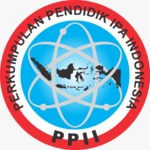The Relationship between Progressivism Educational Philosophy and Science and Its Relevance in the Era of the Industrial Revolution 4.0 (Society 5.0)
DOI:
https://doi.org/10.29408/kpj.v7i1.7658Keywords:
progressivism educational philosophy, natural sciences, industrial revolution 4.0, society 5.0Abstract
Philosophy and science are human efforts to understand the concepts and methods of a scientific discipline. Changing times and developments have ushered in a philosophy of configuration by showing how the "tree of knowledge" thrives and branches out from the respective disciplines. This study aims to examine philosophy and science and their relevance in the Industrial Revolution 4.0 era. This research method uses the hermeneutic method in explaining the reality that occurs with elements of interpretation and description. The results of the research can be described that the study of the relationship between philosophy and science has developed so rapidly. Philosophy and science are indispensable in the development of science and technology which is marked by sharpening of scientific specialization, because by studying philosophy scientists are expected to be aware of its limitations so as not to get caught up in intellectual arrogance. It is impossible to fight against the discourse on the development of science and technology, but rather to reduce the negative impact of technology itself. In the era of the Industrial Revolution 4.0 and Society 5.0, community groups are heterogeneous, so that very complex problems arise related to technological developments and can change the mindset of human life to patterns of life that are more sophisticated with the power of technology. like robots and the internet. Thus, science which is used as an axiological milestone in directing and controlling the development of science and technology in a positive way for the benefit of humanity and its environment is philosophy and science.
References
Handayani, F. 2016. Filsafat dengan Ilmu Pengetahuan Alam. http://fitrihandayani667.blogspot.com/2016/12/filsafat-dengan-ilmu-pengetahuan-alam.html (diakses 26 April 2022).
Bakhtiar, A. (2012). Filsafat Ilmu. Jakarta: PT Raja Grafindo Persada. Carnap, R. (2012). An Introduction to the Philosophy of Science. New York: Dover Publication, Inc.
Fukuda, K. (2020). Science, technology and innovation ecosystem transformation toward society 5.0. International Journal of Production Economics, 220(2), 107–129. https://doi.org/10.1016/j.ijpe.2019.07.033
Harjanto, R., & Lasiyo. (2018). Filsafat Kehidupan dalam Perspektif Tao Te Ching Lao Tsu. Jakarta: Obor.
Hidayatullah, S. (2006). Relasi Filsafat dan Agama (Perspektif Islam). Jurnal Filsafat, 40(2), 128–148. https://doi.org/10.22146/jf.31271
Ibda, H. (2019). Filsafat Umum Zaman Now. Pati: CV. Kataba Group. Jalaludin. (2013). Filsafat Ilmu Pengetahuan. Jakarta: PT. Rajagrafindo Persada.
Kirom, S. (2011). Filsafat Ilmu dan Arah Pengembangan Pancasila: Relevansinya Dalam Mengatasi Persoalan Kebangsaan. Jurnal Filsafat, 21(2), 99–118. https://doi.org/10.22146/jf.3111
Komara, E. (2012). Filsafat Ilmu dan Metodologi Penelitian. Bandung: PT Refika Aditama.
Levine, D. (2018). Auguste Comte and Positivism: The Essential Writings. Contemporary Sociology: A Journal of Reviews, 47(6), 677–688. https://doi.org/10.1177/0094306118805421c
Makhmudah, S. (2018). Hakikat Ilmu Pengetahuan dalam Perspektif Modern dan Islam. Jurnal Al-Murabbi, 4(2), 202–217. http://ejournal.kopertais4.or.id/mataraman/index.php/murabb i/article/view/3173
Maksum, A. (2015). Pengantar Filsafat Dari Masa Klasik Hingga Postmodernisme. Yogyakarta: Ar-Ruzz Media.
Mufid, F. (2013). Perkembangan Paradigma Epistemologi Dalam Filsafat Islam. Ulumuna Jurnal Studi Keislaman, 17(1), 19–40. https://doi.org/10.20414/ujis.v17i1.172
Nasution, T. A. (2016). Filsafat ilmu: Hakikat mencari pengetahuan. Yogyakarta: Deepublish.
Okasha, S. (2016). Philosophy of Science: Very Short Introduction. United Kindom: Oxford University Press.
Poespowardojo, T. . S., & Seran, A. (2015). Filsafat Ilmu Pengetahuan. Jakarta: Kompas.
Prasetyo, B., & Trisyanti, U. (2018). Revolusi Industri 4.0 dan Tantangan Perubahan Sosial. IPTEK: Journal of Proceedings Series, 5, 22–28. https://doi.org/10.12962/j23546026.y2018i5.4417
Rapar, J. H. (2001). Pengantar Filsafat. Yogyakarta: Kanisius.
Rofiq, M. N. (2018). Peranan Filsafat Ilmu Bagi Perkembangan Ilmu Pengetahuan. Falasifa, 9(1), 161–175. https://doi.org/10.36835/falasifa.v9i1.112
Rohida, L. (2018). Pengaruh Era Revolusi Industri 4.0 terhadap Kompetensi Sumber Daya Manusia. Jurnal Manajemen Dan Bisnis Indonesia, 6(1), 187–198. https://doi.org/10.31843/jmbi.v6i1.187
Schrijvers, J. (2018). Contemporary philosophy of religion: An introduction. In Tydskrif vir Geesteswetenskappe. Cambridge: Cambridge University Press. https://doi.org/10.17159/2224- 7912/2018/v58n3a1
Schwab, K. (2019). Revolusi Industri Keempat. In The Fourth Industrial Revolution. Jakarta: PT. Gramedia Pustaka Utama.
Semiawan, S. Y. (2006). Panorama Filsafat Ilmu Landasan Perkembangan Ilmu Sepanjang Zaman. Jakarta: Teraju.
Setiawan, J., & Sudrajat, A. (2018). Pemikiran Postmodernisme dan Pandangannya Terhadap Ilmu Pengetahuan. Jurnal Filsafat, 28(1), 26–46. https://doi.org/10.22146/jf.33296
Soyomukti, N. (2011). Pengantar Filsafat Umum. Yogyakarta: Ar- Ruzz Media.
Suaedi. (2016). Pengantar Filsafat Ilmu. Bandung: Alfabeta.
Surojiyo. (2008). Ilmu Filsafat Suatu Pengantar. Jakarta: PT. Bumi Aksara.
Tasnur, I., & Sudrajat, A. (2020). Teori Kritis: Perkembangan dan Relevansinya Terhadap Problematika di Era Disrupsi. Jurnal Yaqzhan, 6(1), 32–51. https://doi.org/10.24235/jy.v6i1.5894
Wahana, P. (2016). Filsafat Ilmu Pengetahunaan. Yogyakarta: Pustaka Diamond.
Wilujeng, S. W. (2014). Ilmu dalam Perspektid Filsafat (Suatu Upaya Mengembalikan Ilmu pada Hakikatnya). Jurnal Humanika, 2(2), 93–102. https://doi.org/10.14710/humanika.20.2.93-102
Zaprulkhan. (2016). Filsafat Umum Sebuah Pendekatan Tematik. Jakarta: PT. Raja Grafindo Persada









